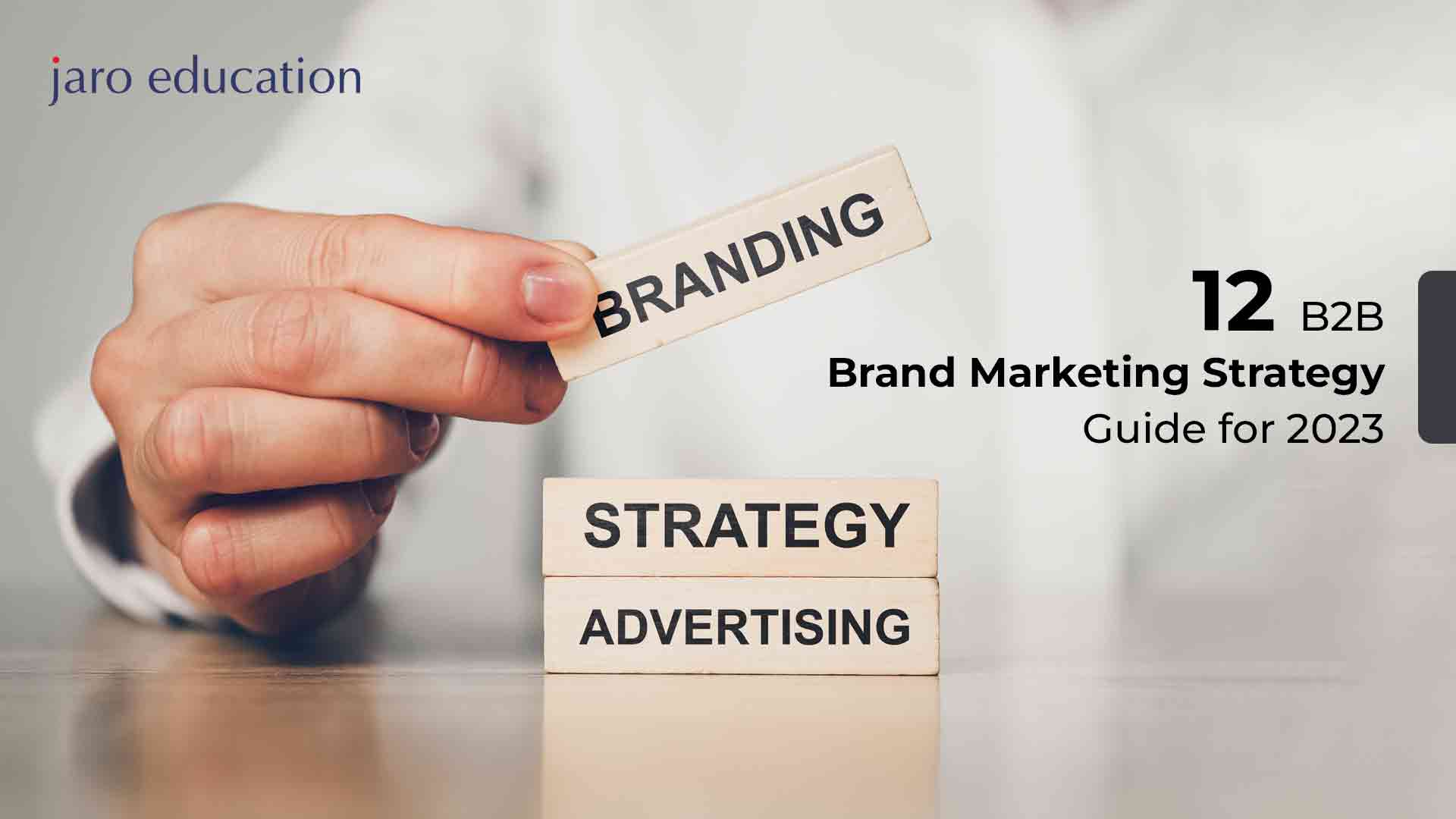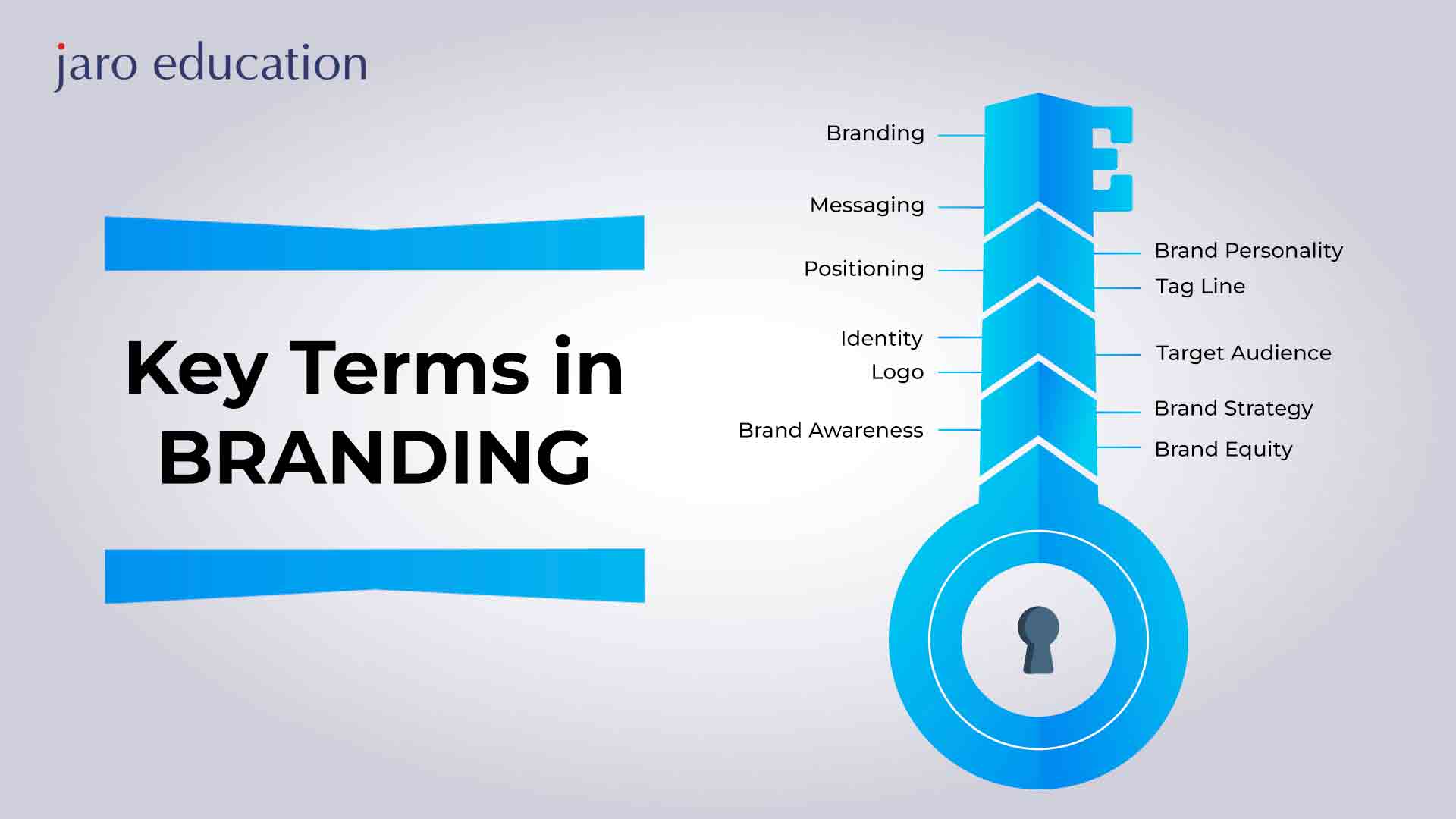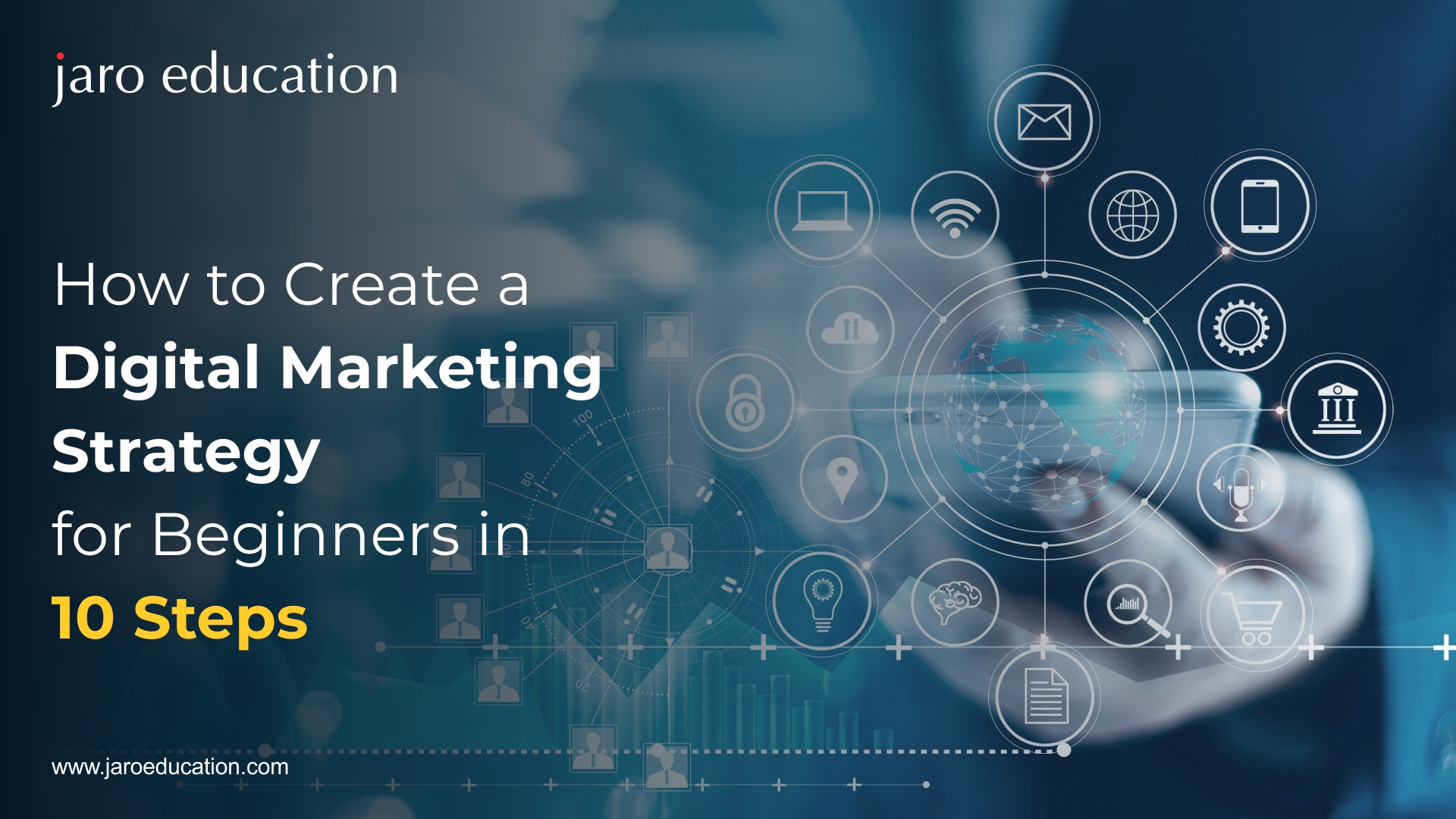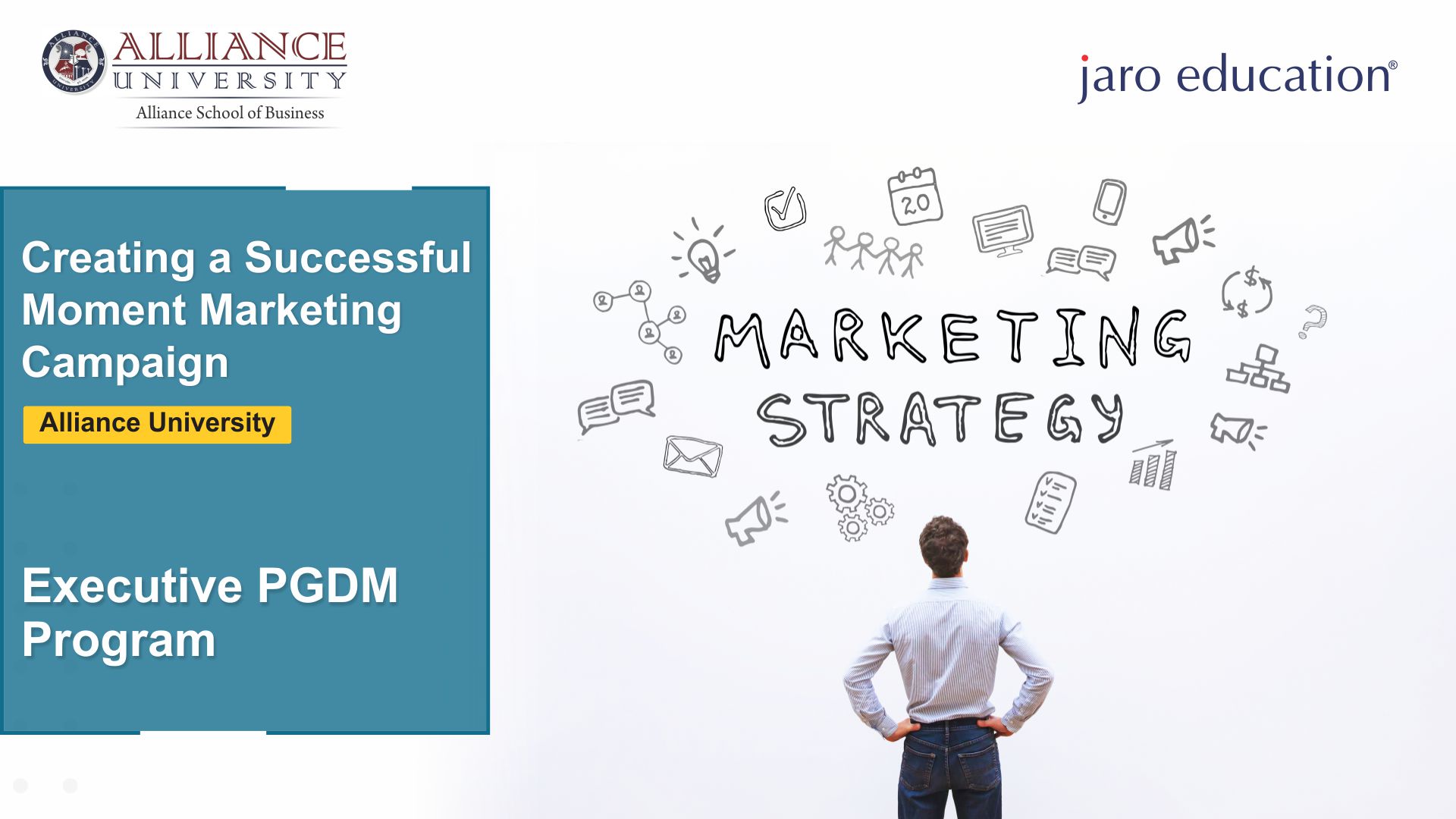
A brand marketing strategy is a set of rules that assists organisations in determining their basic values and what they aim to accomplish with their business. More significantly, it outlines how those principles may be used in the marketplace. To develop a brand strategy, teams must have a thorough understanding of why certain strategies are needed and a detailed outline of what these strategies will be. The more detailed the outline of the strategies, the easier it will be to execute them. Managing the value of a company’s products or the brand in the market is referred to as brand management. Efficient brand management leads to building a loyal customer base and positive associations.
Brand management is important for every business to get visibility and audience reach. Brand marketing and management can be a daunting if you are unfamiliar with the basic concepts and strategies. However, there are programmes that can help you kick-start your career in this field. IIT Delhi provides the Executive Programme in Brand Management, which deals with the nitty gritty of brand management. To know more about this programme, register with Jaro Education.
Brand marketing strategy guide for 2023
It is easier said than done to find the perfect B2B brand marketing strategy to engage, connect with and convert the target audience. Here is a suitable brand marketing strategy guide that would make your job several notches easier.
Use emotion in advertising
Many company owners who create B2B content marketing strategies and campaigns believe that B2C buyer journeys are emotive and B2B purchases are logical. But that’s not the case. According to science, nearly all customer decisions, even those made by businesses, are influenced by emotional factors. While your B2B customers may be more interested in case studies, facts, figures, and evidence than your B2C customers, they will also want an emotional connection to your company. Including emotive themes in your B2B marketing, such as storytelling, may help you connect with your audience on a deeper level, enhance conversions, and generate loyalty.
Make your content dynamic by personalising
Making B2B marketing strategies more customised to each user with whom businesses wish to connect is one of the finest methods to enhance them. While owners can’t continually tailor their business website to different firms’ behaviours, they may employ “dynamic” assets to vary the advertising aspects that visitors view.
Other possibilities for dynamic content include:
- Differentiating offerings depending on a user’s location.
- Ads are changed dependent on the visitor’s referral source.
- Delivering personalised messaging through pop-ups depending on client intent.
- The dynamic content you develop will assist you in creating a more engaging and personalised experience for your audience at each point of their purchase lifecycle.
Table of Contents
Employ a referral system
One of the most effective methods to boost the number of leads generated by B2B marketing strategies is to have current customers do some legwork for companies. Following a successful purchase, around 83% of consumers say they will suggest a firm to another person. Furthermore, 78% of B2B referrals generate credible leads for a company.
Including referral strategies in the marketing efforts is an excellent approach to capitalise on a brand’s existing satisfied consumers. However, branding teams may need to consider novel strategies to entice existing consumers to recommend new customers. Because B2B customers are frequently busy people, they must receive actual value in exchange for devoting time and effort to promoting your company.
Investing in analytics
Measuring a B2B campaign is the only way to know if it is yielding notable growth. Investing in technologies that allow for successful analysis of the results of B2B marketing efforts may be tremendously beneficial to today’s B2B business executives. Brands may also use the analytical tools provided by social media platforms to measure the amount of participation among different groups from different places or demographics. Furthermore, they can do A/B tests on the email campaigns to discover which ones get the most clicks and opens.
Leverage case studies and user-generated content
Over 92% of B2B buyers think they are more inclined to make a purchase after reading a credible review. Finally, every company buyer wants to see evidence that the product or service they’re investing in will produce results. User-Generated Content (UGC) is among the efficient methods of providing the peace of mind that most company executives need.
There are several excellent methods for businesses to use UGC to increase their credibility. They may publish basic reviews and testimonials on social media platforms like Instagram, Facebook, Snapchat, and LinkedInI. Alternatively, companies might upload client video testimonials and interviews on YouTube or publish success stories on their website.
Case studies are one of the most successful kinds of UGC for B2B brands. Numerous B2B brands employ case studies to showcase the specific difficulties they’ve handled for organisations in the past, which helps them connect with their target audience.
Creating an internal funnel for SEO keywords
B2B content marketing is one of the leading strategies for capturing audience attention, boosting thought leadership, and increasing engagement. Most B2B brands utilise content marketing on a daily basis to engage with their audience.
The interesting thing about content marketing for B2B businesses is that it helps marketers to demonstrate their industry knowledge while also strengthening their position in search engines. However, to achieve the greatest results, brands must choose the appropriate keywords.

Acknowledge B2B influencer marketing
Working with influencers is a strategy that many people associate with B2C advertising. B2B influencer marketing, on the other hand, can also be incredibly beneficial. Lead generation efforts approved by micro-influencers on LinkedIn achieve a conversion rate of up to 20% on average. Influencer marketing initiatives are a great approach for B2B brands to establish their credibility with companies that are unfamiliar with them. Working with a well-known specialist in your field demonstrates that you are more trustworthy and reliable.
Design Mobile Apps
B2B brands are becoming mobile. As hybrid and remote working strategies become more prevalent, many firms are conducting research on their cell phones while on the go. Developing a brand’s own mobile app might be a fantastic method to capitalise on this trend. Around 78% of B2B businesses currently feel that B2B e-commerce mobile apps and mobile devices are critical to their industry’s future. If businesses wish to unlock new opportunities or repeat purchases or enhance engagement, they can utilise the apps in every way possible. Push notifications may also be used in mobile apps, allowing brands to deliver unique discounts and offers to their clients at specific moments to increase their purchases.
Expanding content marketing strategy
Content marketing is used in a variety of B2B marketing methods. After all, most online customers value unique content provided by a company that helps them learn about products or solve specific problems. While a blog with lots of thought leadership material may be a great starting point for a marketing strategy, brand marketers need to consider more than written words. A B2B content marketing strategy should strive to interact with consumers on numerous levels in today’s changing marketplace to thrive.
Leverage training resources for marketing
In B2B marketing, it is essential to retain customers. Most customers switch brands if the onboarding process and purchasing becomes difficult. Most B2B buyers don’t have time to squander learning how to utilise a new service or technology. They want to buy a thing when they understand how to utilise it. Including client onboarding and training tools in the B2B content marketing strategy will significantly boost the chances of increasing sales. Brands should inform their onboarding and customer success teams about the challenges their clients frequently encounter while using the services.
Psychological investment
The art of “neuromarketing” or psychological marketing is one of the most powerful and underutilised B2B marketing strategies that businesses should pursue. There has always been a close relationship between psychology and the marketing sector.
Companies must understand how their consumers think and feel in order to interact with them on a deeper level and deliver personalised, engaging experiences. Neuromarketing, often known as consumer neuroscience, is the study of probable factors that impact B2B purchase choices and the development of campaigns based on those findings.
The key to good neuromarketing is getting as much information as possible from their B2B clientele. To understand the B2B buyer experience better, brand marketing teams can use heat mapping on websites, AI sentiment analysis and in-depth reporting and analytics services. This can help with the development of psychologically driven sales and marketing initiatives.
Using technology for new experiences
The marketing environment of today is changing at a breakneck rate. Companies have access to more than simply email and social media marketing. The epidemic has pushed us towards a climate in which endless immersive encounters may take place online, allowing for improved brand loyalty and conversions.
Keeping this in mind, brands considering innovative B2B marketing tactics may consider experimenting with various types of technology. For example, to assist clients in selecting the best service or products, marketing teams might integrate an AI chatbot with conversational intelligence and natural language processing skills.
It’s also worthwhile to investigate the domain of expanded reality. Companies may use augmented reality, virtual reality and mixed reality to let consumers test and showcase their goods without the need for face-to-face encounters.
Final Thoughts
B2B brand marketing is similar to B2C brand marketing, with the basic difference being it caters mostly to businesses and companies. So, it can be stated that it is used in a more professional sense. To make these marketing efforts work, every organisation must realise the elements of a brand strategy, based on which different B2B marketing strategies can be created. Though finding the right guide for B2B marketing is not easy, with the right knowledge and expertise, it becomes simpler.
To gain hands-on experience in the field of brand marketing and management, you can take part in the Executive Programme in Brand Management offered by CEP, IIT Delhi. This 6-month programme will be held online. By enrolling in this industry-aligned course, you will gain expertise in the essential skills required to transcend in today’s brand management field, with a mix of theoretical knowledge and hands-on experiences. To know more about the course details, connect with the experts of Jaro Education.







